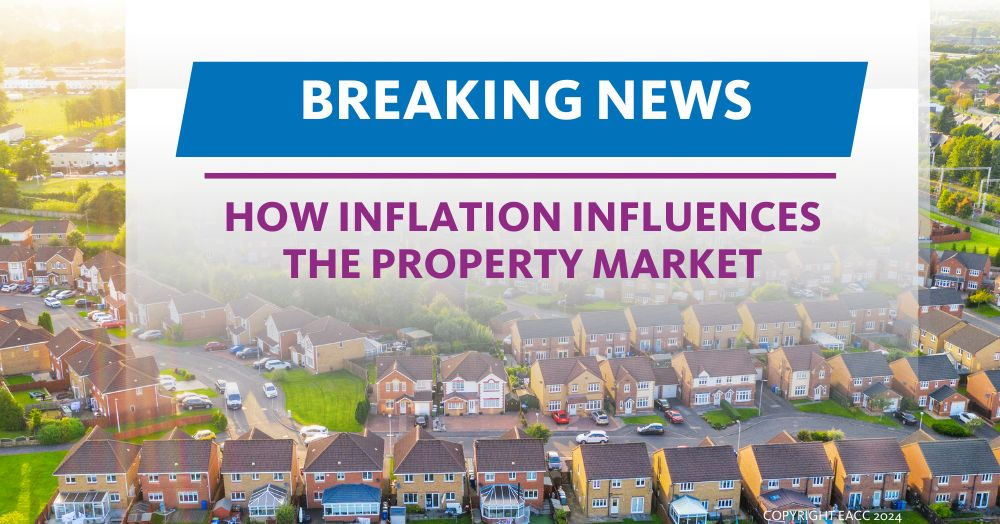
Inflation – How Will It Affect the Property Market?
It was revealed today that inflation increased to 2.3% in October. We take a look at what this means and if it is good or bad for the property market in Scotland.
The latest Consumer Prices Index (CPI) released by the Office for National Statistics revealed that inflation increased from 1.7% in September to 2.3% in October.
But how exactly does inflation impact the property market?
There is a link. But it is not quite as simple as it might seem.
When inflation rises or falls, it does not necessarily mean that house prices are rising or falling. The CPI, the main measure of inflation in the UK, does not include house prices or mortgage costs – although it does include rents.
But rising inflation puts up the price of almost everything we buy and can affect house prices indirectly.
If people have less disposable income, they may be less likely to move house. Or they may make lower offers if they do. That can exert downward pressure on house prices. The reverse can also happen when inflation falls.
Inflation can also affect the interest rate, and so impact mortgage payments.
The Bank of England (BofE) uses the interest rate to try and keep inflation under their 2% target. When inflation rises, the BofE may raise the interest rate (or bank rate as it is known) to try to bring inflation down. And then reduce it if inflation starts to fall. Mortgage lenders often base their mortgage rates on the current bank rate.
So, when inflation rises, it usually means mortgages become more expensive. That could serve as a check on property prices.
When inflation falls – as it has done in recent months before October’s rise – it ought to mean that mortgages become cheaper. That, alongside the fact that (hopefully) we all have a little more disposable income, could work to push house prices up.
So far as landlords and tenants are concerned, inflation almost always pushes up rents.
While rising rents are not good for tenants, they can benefit landlords directly. Landlords should find they can earn more rent. That should improve their rental yields, too.
One last important point: Over the long term, property prices usually rise ahead of inflation.
A 2020 report from property experts Avison Young said that across all 5-year rolling periods since 1985, property investors beat inflation around 85% of the time.
So, whether you are an owner-occupier, landlord, or investor, property tends to be an excellent hedge against inflation.
A well-priced, well-presented property should always find a buyer, whatever happens with inflation.
If you’re considering selling or investing, we will be delighted to advise you and help you make fully informed decisions.
Would someone you know benefit from reading this article? Why not share it with them?
Scottish Property Centre have branches in Dunoon, Cardonald and Shawlands covering the Glasgow and Argyll property markets. We have local experts serving local people.
